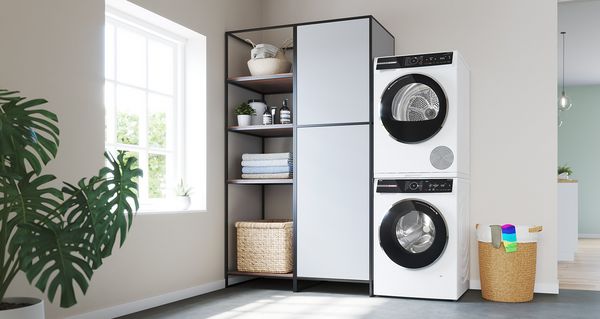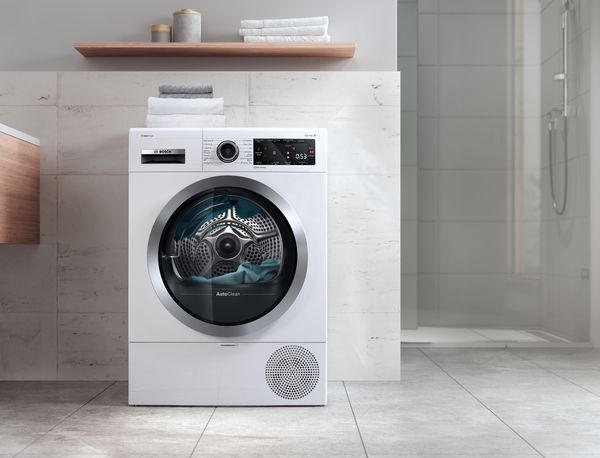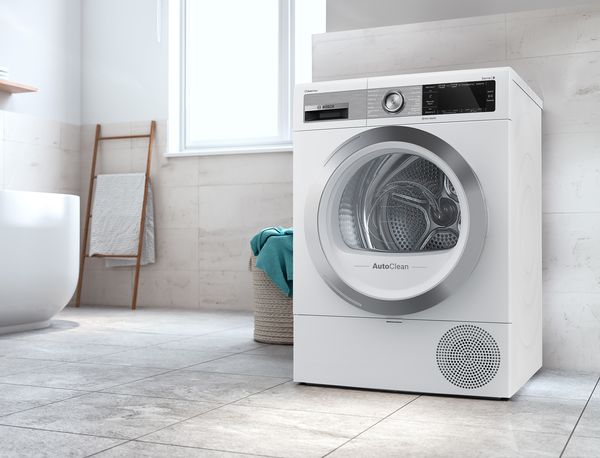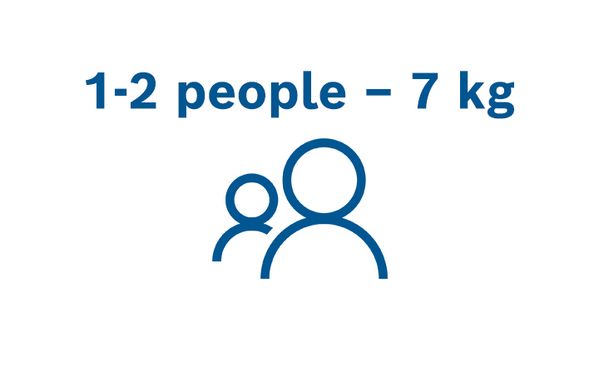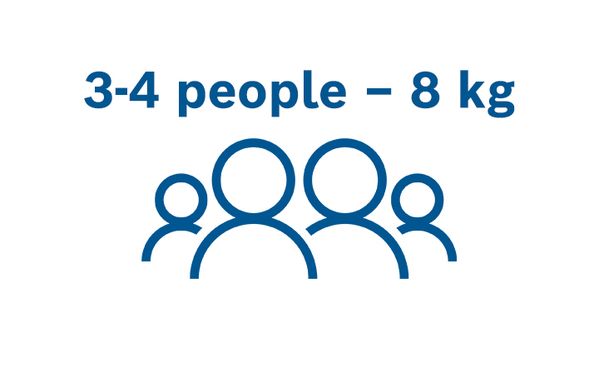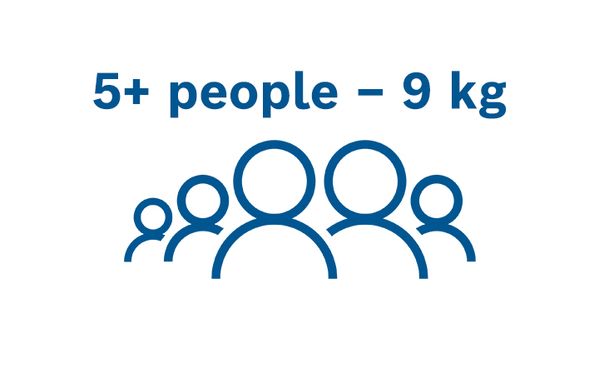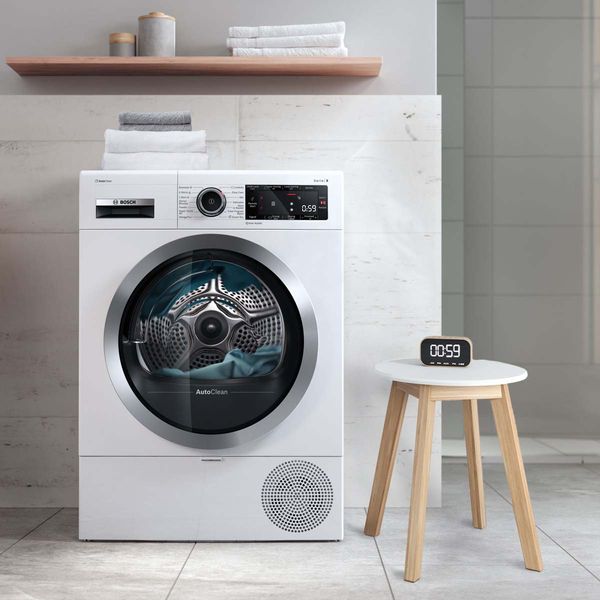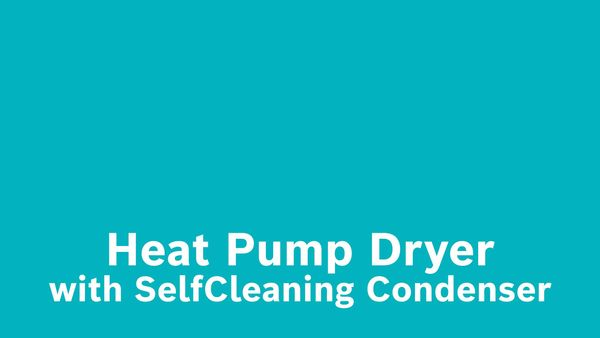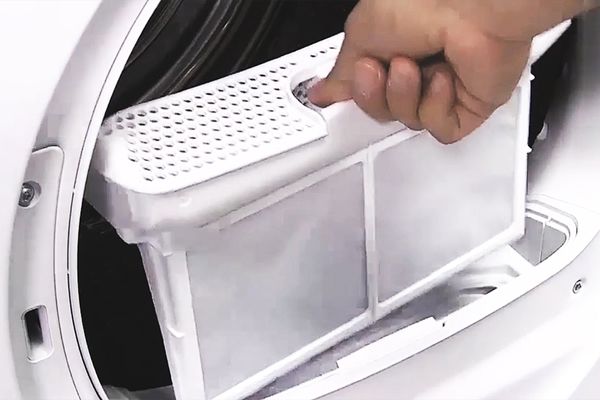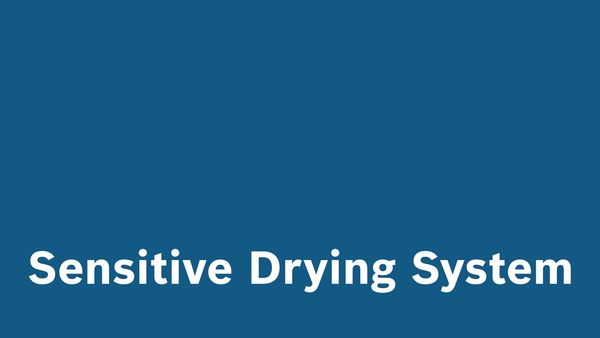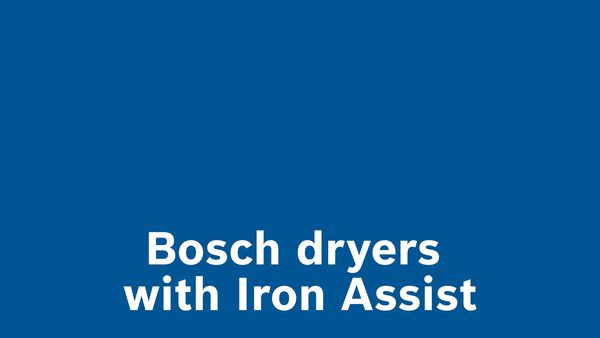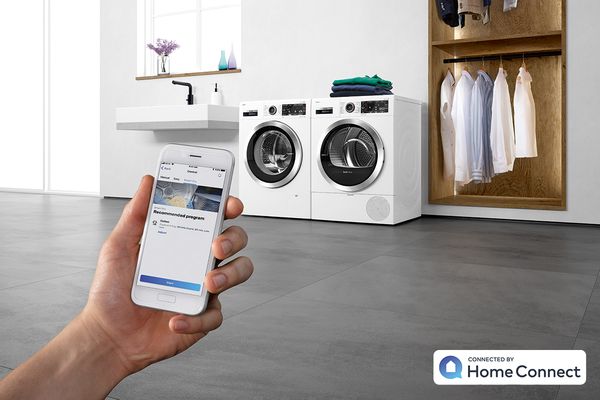Do you know roundabout what kind a dryer you want, but need help choosing? Our Dryer Finder tells you in a few clicks which model is best for you.
7 key questions for dryer buyers.
Other criteria to help you choose:
Which dryer should I buy? Which dryer is best?
A dryer makes doing laundry much more convenient. Just wash, dry, fold and done! Whether you opt for a heat pump tumble dryer or condenser tumble dryer is entirely up to you. Those wanting to reduce their carbon footprint and lower their energy bill should choose a heat pump dryer for its high energy efficiency.
A big household might look for the best dryer for a large family, such as our 9 kg dryers that can dry a large capacity of laundry at once. If a quick dryer or a quiet dryer are on your list of must-haves, you've got options as well. Read on to find out exactly what to consider when choosing a new dryer.
1. Which type of tumble dryer do I need: condenser or heat pump?
There are two types of ventless tumble dryers to choose from: a heat pump tumble dryer and a condenser tumble dryer. Alternatively, a two-in-one washer dryer is a good option for those short on space.
What is a heat pump tumble dryer? How does a heat pump dryer work?
A tumble dryer with a heat pump is the most energy efficient type of dryer. Instead of heating the air with a heating element, it reheats the circulating air. Although it comes with a slightly higher purchase price, a heat pump dryer consumes significantly less energy to run, meaning the investment quickly pays off.
Technically speaking, a heat pump dryer is a type of condenser dryer: it collects humidity during the drying process.
What is a condenser dryer? How does a condenser dryer work?
A typical condenser tumble dryer dries clothes quicker than a heat pump model, but it consumes much more energy. It collects humidity in a water compartment that must be emptied after each load.
What is a washer dryer?
As the name suggests, a washer dryer combines the functions of two appliances in one housing. It's ideal for those who long for a dryer, but lack space for two separate appliances. The washing and drying capacity of a washer dryer is typically lower than that of a standalone dryer.
2. How much laundry should my dryer hold?
The capacity of a dryer indicates how many kilograms of laundry a machine can dry at once. Our dryers hold between 7 kg and 9 kg of laundry. You can determine the right capacity based on your household size and the type of items you dry. Also, a large load washing machine is best paired with a large load tumble dryer.
3. A quick dryer: is speed important to me?
If your eye is constantly on the clock, choose a high-performance dryer. It's designed to dry clothing as quickly as possible no matter the drying programme.
Many of our dryers also come with our innovative AutoDry feature, which adjusts the programme time, so your clothes come out just as dry as you want. Some washer dryers have a time-saving 60 minute wash & dry programme.
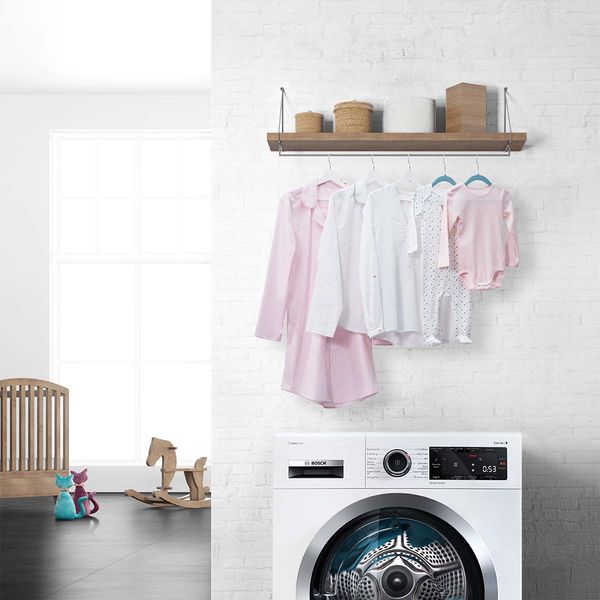
4. Do I want an ultra quiet dryer?
Gernerally speaking, dryers emit less noise than, for example, washing machines. If your dryer is placed in the cellar, the noise level is likely of secondary importance. But a quiet clothes dryer makes sense if your appliance is located in or near your living space. An ultra quiet condenser tumble dryer from Bosch emits between 59 and 62 decibels, about the equivalent of low background music.
5. How do I want to deal with fluff?
Fluff accumulates in every dryer, but not every dryer comes with the same system to filter fluff and keep the appliance clean.
For ultimate convenience: AutoClean
Models with AutoClean collect the fluff in a compartment instead of in a door filter. A special fluff filter needs to be emptied around every 20 cycles.
For less hassle: SelfCleaning Condenser
A dryer with a SelfCleaning Condenser cleans itself during each cycle. For maximum energy efficiency, the door fluff filter should be emptied after every cycle.
For the essentials: fluff filter and bottom filter
Some dryers comes with a door fluff filter that should be emptied after every load you dry. The EasyClean bottom filter needs to be cleaned every 20 cycles.
6. Which features and programmes do I need?
Drying delicates? Long to skip ironing? Love smart appliances? A host of highlight features and programmes on our dryers take drying to the next level. Here are four to know.
Let the dryer decide: SmartDry selects the right drying programme based on information from your washer.
Fabric-friendly drying: The SensitiveDrying System gently dries laundry so it comes out soft, fluffy and wrinkle-free.
Your ironing assistant: Reduce your ironing pile with the IronAssist steam treatment that smooths out dry laundry.
All under control: Via the Home Connect app, you can select a programme and start your dryer, from wherever you are.
Need help choosing a dryer? Try the Dryer Finder.

How long does a tumble dryer last?
A dryer's lifespan depends on a number of factors, including the initial quality of the appliance as well as maintenance and care. High-quality Bosch dryers with German engineering are made to last for years. External tests and certifications are testament to our high quality standards. So when you choose Bosch you can be certain to have made a good decision.
What are the dimensions of a tumble dryer?
The tumble dryer dimensions of models in our range are 85 x 60 x 60 cm. This is the standard dryer size in many parts of the world.
Pro tip: Models with a higher capacity – those that can dry more laundry at one – have the same external dimensions as those with a lower capacity.
Which tumble dryer is best?
What type of tumble dryer is the best? What's the best tumble dryer? What's the best condenser tumble dryer? What's the best heat pump tumble dryer? No matter which dryer you are looking for, it's natural to want peace of mind about your decision. The best dryer for you is the one that meets your personal drying needs, such as your household size and items you dry, and fits your living space. Because our high-quality dryers are made to last, any changes you anticipate, such as a growing family or impending move, might factor into your decision.
Let Bosch Elevate Your Laundry Experience Today
Save time and effort for things that matter.
Ready to transform your laundry experience? Let our team of laundry heroes turn your laundry corner into a smart and efficient space with Bosch Dryer.
